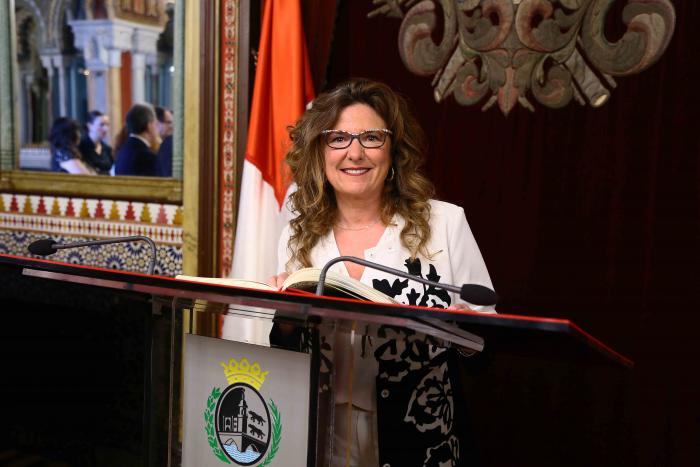Details
Image

With a diverse educational background ranging from Medicine to Tourism and Public Relations Gotzone Sagardui has devoted her professional career to the public service. She has worked for nearly twenty years in the Basque Country University and then as a Chief of Health Care at the Socio-sanitary residence of the Provincial Council of Bizkaia, before becoming Labor Activation Director of the Basque Public Employment Service at the Basque Country Government. She left the Government in 2016 when she was elected as member of the Basque Country Parliament, where she participated in the commissions for health affairs, education and employment and social affairs. Since April 2017 she is a Councilor of the Mayor of Bilbao responsible for institutional relations, human resources and public contracting. She is chairman of the 7th District of Bilbao, as well as board member of different public companies.
Gotzone Sagardui is a speaker at the Empowering smart solutions for better cities conference, organised by the Smart Cities Information System and the European Commission on 2 &3 October 2017 in Budapest, Hungary.
For you, what is the best attitude to take towards making a smart city?
First of all, starting from the very top, the entire organization has to believe in the smart transformation. No entity could be smart as long as it has silos of isolation. Once this is assured, the collaboration amongst the leaders is of capital importance for the process. They should work together in a horizontal way, without leaving anyone behind.
Every city is smart, after all, since those that are not, have already disappeared. The new challenges cities confront with the passing of time, and the way each city does so, makes them more or less attractive and their smartness might not always be obvious. Depending on the geographic situation, the challenges are different, but all of them critical. Understanding that those challenges will make the city smart on the long run is the key attitude, while continuing to work towards the short-term goals.
Finally, cities have to pinpoint where is the particular added value of their available cards (resources), and try turn these challenges into opportunities. For that, the adoption of technological advances should never be feared as something negative.
What has been the biggest benefit for the residents of Bilbao from smart city work so far?
One of the first and probably less acknowledged benefits of going smart is the optimisation of the city’s resources. Employees assuming smart thinking and doing, once the particular step is mastered, will always output higher capacity, effectiveness and efficiency. This increase in power will definitely mean more and better services for the citizens and the city’s ecosystem. In Bilbao, as of today, the city’s WiFi system is a clear example. Years of investing in fiber communications throughout the city, besides saving on the annual budget for municipal communications, have allowed the implementation of a free wireless broad band universal service that nowadays has impact on almost 80 000 users a day, in a city of 350 000 people.
What is your main smart city goal going forward?
In Bilbao's smart city strategy “SMART 2017·25 strategic thinking”, the city has set its vision to become the #1 city in Smart governance among all European cities with less than 1 million inhabitants. Another important focus for Bilbao is Smart people - a field that tries to capture and transmit the values Bilbao has been and should be known for.
